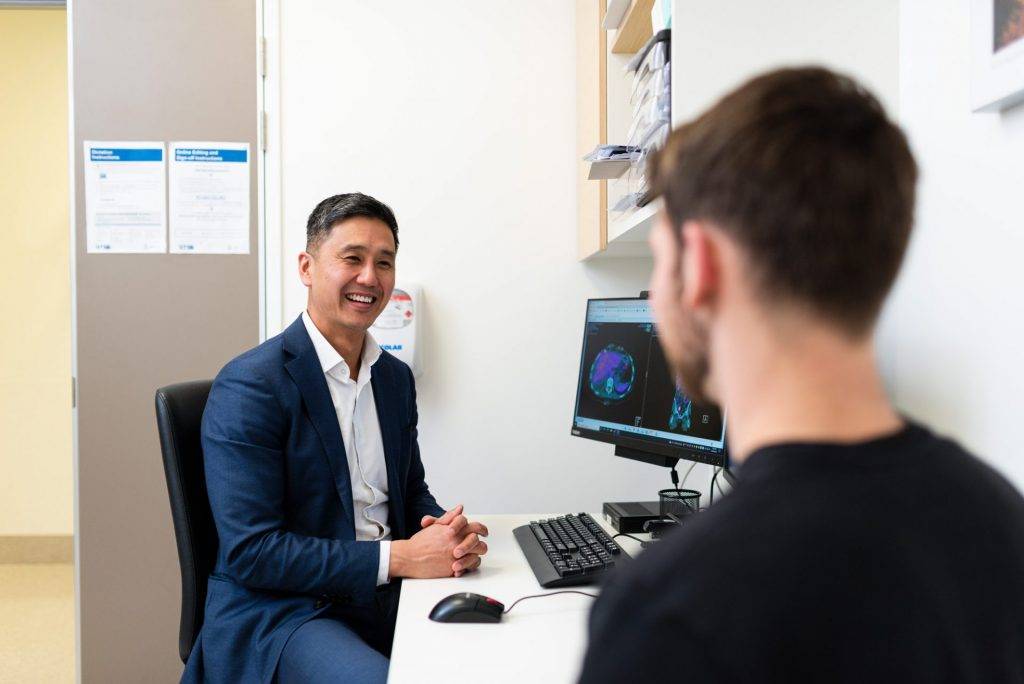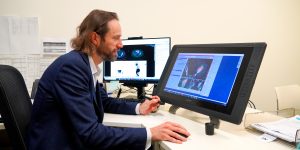Radiation oncologists at the Royal Adelaide Hospital (RAH) are aiming to give patients every possible advantage in their fight against metastatic lung cancer.
The multi-centre OUTRUN study is testing whether combining drug therapy with precisely focused radiosurgery is more effective than standard drug therapy alone.
Incremental gains
“Both treatment modalities work well within the brain. Is that incremental gain from the addition of radiotherapy worthwhile or not? And that’s where this study comes in,” said Associate Professor Hien Le, lead investigator of the OUTRUN study at the RAH.
The target of the treatments is advanced non-small cell lung cancer (NSCLC) with epidermal growth factor receptor (EGFR) mutation that has spread to brain (metastases).
Mutation to the EGFR, a type of protein found on the surface of cells in the body, occurs in 10-50 per cent of patients with NSCLC and contributes to the proliferation of the cancer.
Tyrosine kinase inhibitors (TKIs) are a class of drugs that block the action of the abnormal protein that signals cancer cells to multiply.
Stereotactic radiosurgery is another treatment option and uses 3D imaging to precisely target high doses of radiation to the affected area, with minimal impact on the surrounding healthy tissue.
The outcome of the OUTRUN study is to guide doctors in recommending the best option or combination of available options for the treatment of patients with EGFR mutated NSCLC.
“There may be a synergistic effect, between the radiation and the tyrosine kinase inhibitor,” said A/Prof Le.
“Our hypothesis is that there may be incremental benefits to the addition of the radiation treatment, and it may help the drug work more effectively.”
TKI drug therapy is now the first-line treatment against EGFR mutated NSCLC.
40 participants from 13 sites across Australia and Singapore were recruited to this trial, with the final participant joining in September 2022. Each participant on the study was randomised to receive the TKI Osimertinib or stereotactic radiosurgery in addition to Osimertinib. Participants will continue to take Osimertinib until their study doctor feels that they are no longer receiving a clinical benefit.
A/Prof Le has praised the altruistic sprit of some study participants.
“Patients know that, personally, they are in a difficult situation. But they are really keen to use their position to help future patients who might walk the same pathway down the track.”
“It’s really heart-warming to see that.”
Sponsored by TROG Cancer Research, the study is led by Dr Fiona Hegi-Johnson (Peter MacCallum Cancer Centre, Australia), Dr Chee Lee (National Health and Medical Research Council, Australia), Dr Yu Yang Soon (National University Hospital, Singapore), Dr Ivan Tham (National University Hospital, Singapore), and Dr Ross Soo (National University Hospital, Singapore).
The results of the TROG 17.02 OUTRUN are expected to be known in 2024.



